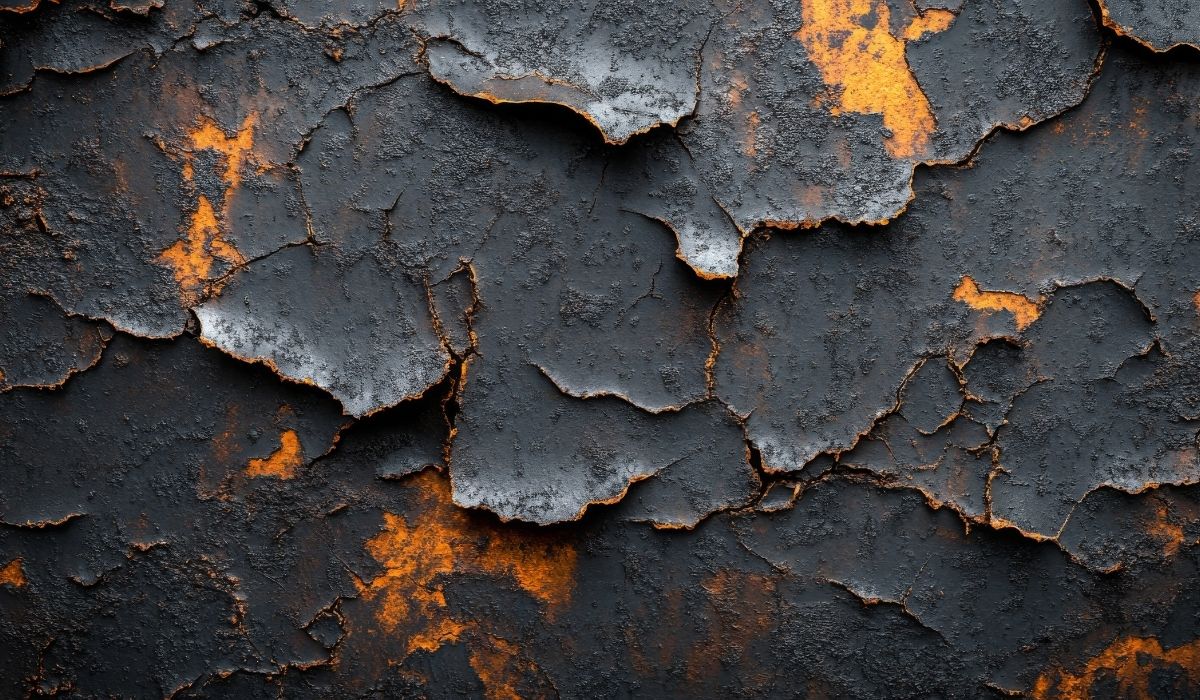Home Waterproofing: Keep Your Basement Dry & Safe
Does your basement feel damp? Do you notice musty odors or even standing water on your basement floor? If so, you may have basement water issues that can lead to mold growth, mildew growth, and expensive damage. The good news is that home waterproofing can help keep your basement dry, protect your foundation walls, and improve your home’s air quality.
In this guide, we’ll explore common basement waterproofing methods, costs, and solutions. Whether you’re dealing with a wet basement, cracks in concrete walls, or just want to prevent future issues, we have quality solutions for you!
Why is Home Waterproofing Important?
Water can seep into your basement through cracks in your foundation walls, basement floor, or exterior walls. When this happens, it can lead to problems like:
- Basement leaks and water seepage
- Mold growth and musty odors
- Structural damage to concrete foundations
- Health risks from poor air quality
- Damage to your finished basement
- Loss of valuable additional living space
Waterproofing protects your home from these risks by keeping your basement dry and preventing water damage.

Common Signs You Need Basement Waterproofing
If you’re not sure whether you need waterproofing, look for these common signs of basement moisture issues:
- Condensation on windows
- Water pooling or standing water
- Damp, humid basement air
- Water stains on basement walls or basement floor
- Mold or mildew growth
- Cracks in basement foundation walls
- Musty odors
- Peeling waterproof paint
Ignoring these issues can lead to more expensive damage over time.
Common Basement Waterproofing Methods
There are many ways to waterproof your basement. The best method depends on the severity of your basement moisture issues and your budget. Here are some of the most effective waterproofing solutions:
1. Exterior Waterproofing Methods
Exterior waterproofing prevents water from entering your home in the first place. Some of the best techniques include:
- Excavation and Waterproof Membranes – Installing a waterproof membrane on exterior foundation walls keeps moisture out.
- French Drains & Exterior Drains – A French drain is a type of drainage system that directs water away from your foundation.
- Proper Drainage & Downspouts Directing Water – Keeping gutters clean and ensuring downspouts move water away from your home helps prevent water damage.
2. Interior Basement Waterproofing
If water has already made its way inside, you can use interior waterproofing methods such as:
- Sump Pump Installation & Sump Pit – A sump pump removes excess water from your basement.
- Drain Tile & Waterproofing Coating – Drainage systems like drain tile direct water away, while coatings like liquid membrane or waterproof paint help seal walls.
- Epoxy Injections for Foundation Cracks – Epoxy injections can repair basement foundation cracks and prevent leaks.
- Basement with Vapor Barriers – Adding a waterproof material like a vapor barrier reduces moisture issues.
3. Crawl Space Waterproofing
For homes with crawl spaces, crawlspace inspection and crawl space inspection services help detect water issues. Using synthetic sheet membranes or cementitious coatings can protect your home’s foundation.

How to Choose a Basement Waterproofing Company
Hiring Basement Professionals or a basement restoration company ensures the job is done right. Look for:
- Professional contractors with experience in foundation repair
- Annual inspections and quality service
- Affordable financing options
- Top-quality products like concrete sealers and waterproofing materials
- Comprehensive basement solutions to fix all moisture issues

FAQs About Home Waterproofing
1. What is the cheapest way to waterproof a basement?
The cheapest option is using waterproof paint, concrete sealant, or acrylic sealants. However, this method is not as effective for major leaks.
2. How do I prevent basement water leaks?
Keep gutters clean, install proper drainage systems, and consider sump pump installation or exterior waterproofing methods.
3. Is basement waterproofing worth the cost?
Yes! It prevents expensive damage, mold growth, and health hazards, and can even increase your home’s value by creating additional living space.
4. How do I know if my basement needs waterproofing?
Look for musty odors, water stains, condensation on windows, mildew growth, and foundation cracks. A crawlspace inspection or inspection of foundation work can help.
5. Can I waterproof my basement myself?
For minor issues, DIY methods like waterproofing paint, epoxy injections, or cement-based sealant can help. But for major basement water leaks, it’s best to call a basement waterproofing company.
Final Thoughts
A waterproof basement is a safe, healthy, and valuable part of your home. By using proper drainage, waterproofing materials, and comprehensive basement waterproofing systems, you can keep your basement dry and protect your home’s structure for years to come.
Whether you’re looking for affordable options, comprehensive processes, or quality solutions, investing in home waterproofing is a smart decision. If you’re unsure where to start, reach out to a basement waterproofing company for a consultation today!
Visit your nearby local emergency responder or contact us today for more information.
Table of Contents
EXCELLENTVerified A straight up honest broker who knows his stuff. Excellent communication and very helpful problem solving our mold issuePosted onVerified Giving Eric a 5-star review, and we haven't even started any work yet. He came to gave us his professional opinion and quote to address a mold issue in our house. He is clearly very knowledgeable. His opinion was wildly different than the previous estimate we received, from an agency that wanted to charge us about 4 times as much. He did a much more thorough assessment, and explained his reasoning for why he felt that our issue wasn't as extreme as the previous agency. He even gave us some suggestions as to how we could address our issue on our own, if need be. He doesn't appear "out to get you"... there are a lot of companies that work off the "mold is gold" motto, but he doesn't seem to be one of them. If we end up going with him for the job, we'll update the review... but, I was just so happy and relieved with his approach, estimate, knowledge, and his overall professionalism. Glad there are still people like this out there!Posted onVerified Eric and his team were prompt and professional. From diagnosis through cleanup they were very thorough.Posted onVerified Above and beyond expectations. Eric and his team were not only helpful, kind, and relatable to our issues, they were extremely professional and reliable. Always answered our calls. Showed up on time with great attitudes. Respected our home. Most importantly, got the job done in a fast and timely manner. Can't recommend enough.Posted onVerified We had a leak under the kitchen sink and called another company first. We were told there is mold and they would have to tent the area to remove it and that we'd also need a whole new cabinet. Of course, it was pretty expensive and they said we couldn't use the kitchen for a couple weeks. Feeling it's always wise to get more than one estimate, I called Preferred Restoration as they had excellent reviews. Eric replied promptly and came out to look things over. He felt the mold wasn't bad enough to require a tent and also felt a whole new cabinet was not required. Needless to say, we accepted his estimate immediately and the work was done in a professional manner. (They don't do the carpentry work, but can make a recommendation.) I highly recommend Preferred Restoration. I believe it's an honest company with skilled professionals.Posted onVerified Eric the owner was great to work and keep me informed the entire time that the moisture was being removed from my home. Highly recommend Eric and his team for any job!Posted onVerified Right from the start I knew I was going to be in good hands with this company. The response time was super quick and getting Eric to come out to my home to assess the situation was quicker than expected. Eric was very knowledgeable and answered all my questions thoroughly. He took his time to listen to all my concerns to carefully address the issues in my home. He made a stressful situation feel less stressful and manageable. I definitely recommend this company and will contact Eric if needed in the future. Thanks again Eric!Posted onVerified We discovered a mold issue in one of our bedrooms and reached out to Preferred Restoration Services for guidance. Eric was extremely helpful in helping us navigate what needed to be done since we had no experience with this type of issue. He shepherded us through the process and helped us understand every step that needed to be performed. He referred us to a couple of contractors which we used for plumbing and testing and they were also excellent. This was helpful so that we didn't have to figure out who else we needed to work with and vet them as well. Everyone from Preferred Restoration Services was very professional, communication was excellent, and customer service was outstanding. We had a lot of questions and they were all answered very quickly. I highly recommend Preferred Restoration Services for any damage restoration needs.Posted onVerified Preferred Restoration is the best service in town! If you want quality, fair pricing & guidance, call Preferred Restoration! Ask for Eric, he is very helpful and quick.Posted onVerified We had an issue with a sewer line that leaked and potentially needed some soil remediation under the house. I gave Eric a call and made an appointment for the next day for him to come out and assess the situation. Throughout the process his communication was great and he was on time (even gave me a call to let me know he was on his way). He went above an beyond to even check inside the house for potential water damage/mold. We did not have to move forward with any remediation. I appreciate Eric's communication, thoroughness, and HONESTY. We will keep his contact if we need any work in the future. I highly recommend Eric and Preferred Restoration!



